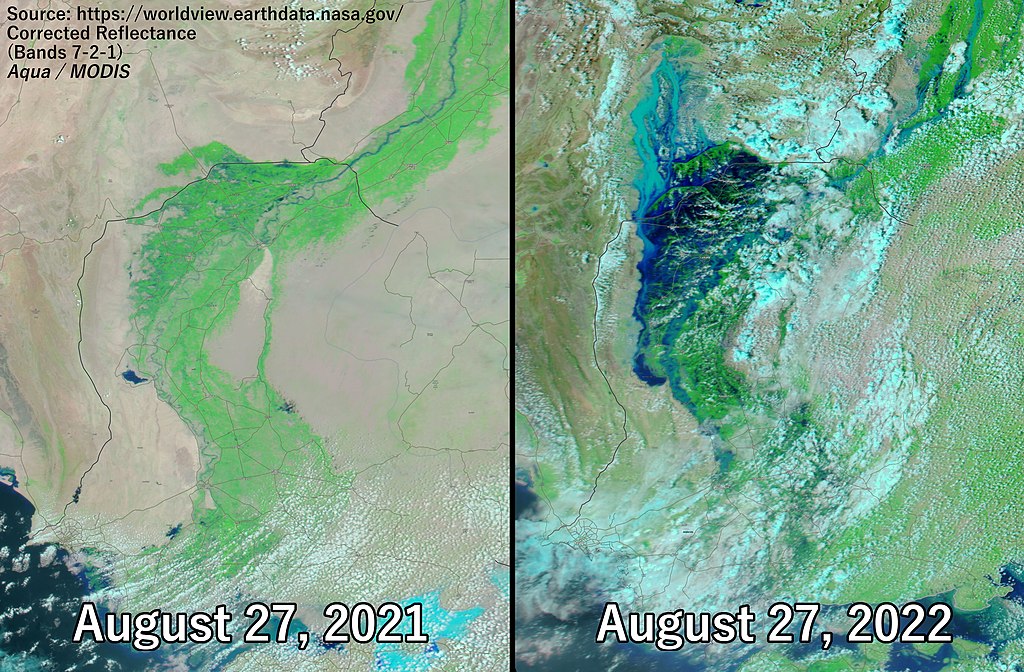This is a summary of the original article by Chelsea Harvey, EE news that may be found here
A new scientific analysis published by the World Weather Attribution consortium finds that climate change likely intensified the devastating floods that inundated Pakistan this summer. Extreme rainfall has been increasing across the country, and the study indicates that global warming played a role in the disaster. The researchers used observational data, climate models, and simulations to investigate the links between climate change and extreme weather events in Pakistan. The findings suggest that rainfall has intensified in the country over the years, with the five-day period of heaviest rainfall in the affected provinces of Sindh and Balochistan increased by up to 75 percent.
The researchers found that both the 60-day period of heaviest rainfall across the Indus River basin and the five-day period of heaviest rainfall in Sindh and Balochistan each constituted a “1-in-100” year event in the present-day climate, meaning that it had about a 1 percent chance of occurring in any given year. The models suggested that climate change has increased the five-day rainfall totals in Sindh and Balochistan by as much as 50 percent, making it likely that global warming played a role in the disaster. However, monsoon rainfall in Pakistan is highly variable from one year to the next, making it difficult to determine the exact extent to which climate change affected the intensity of the floods.
The researchers also investigated the future impact of global warming on extreme rainfall events in the country. The findings suggest that the five-day rainfall event will continue to intensify as the world warms. The models used to simulate a world that has warmed by 2 degrees Celsius had major uncertainties when it came to the 60-day event, making it challenging to estimate the impact of future warming on the region.
The devastating impact of the floods was driven by a range of factors, including high poverty rates, inadequate infrastructure, outdated river management plans, and the legacy of colonial rule in Pakistan, which has influenced the country’s engineering and water management strategies. The new analysis notes that the impacts of extreme weather on communities heavily depend on a variety of factors, including socioeconomic conditions, early warning systems, and disaster management plans.
In conclusion, the new scientific analysis indicates that climate change likely intensified the devastating floods in Pakistan this summer and that these kinds of extreme rainfall events may become more severe as the world continues to warm. The research highlights the need for disaster management plans that take into account the impact of climate change on extreme weather events and the vulnerability of communities.
The views expressed herein may not necessarily reflect the views of JI FAD and/or any of its affiliates






